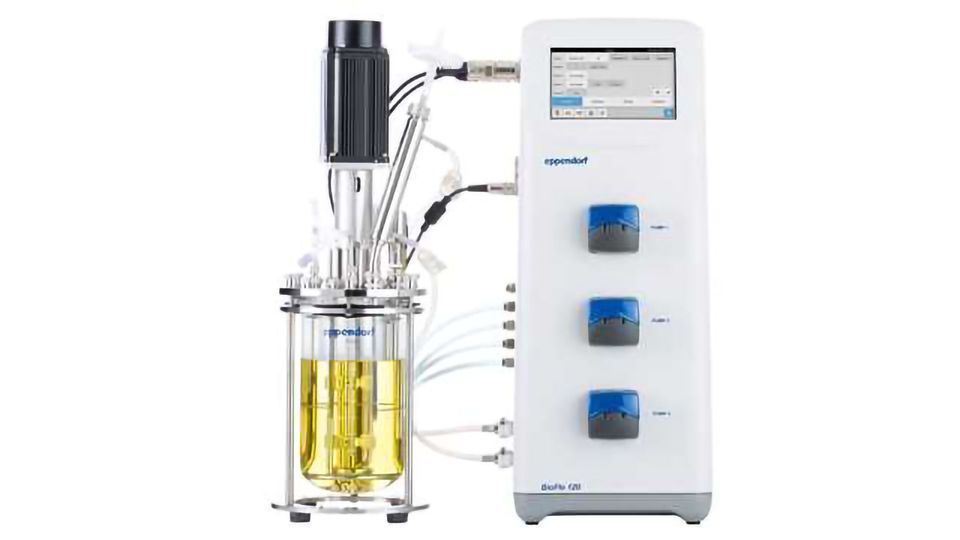Eppendorf's BioFlo 120: Benchtop Bioprocessing Made Easy

Complete the form below to unlock access to ALL audio articles.
Leading life science company Eppendorf introduces the BioFlo 120, their latest bench scale fermentor/bioreactor system for research and development. This flexible instrument is capable of microbial fermentation as well as mammalian cell culture applications with a single platform. It features an extensive range of glass and BioBLU® Single-Use Vessel options (250 mL – 40 L). Universal connections for digital Mettler Toledo® ISM and analog sensors make it easy to monitor a variety of critical process parameters.
“We know that in research and development time is critical. Our priority was to develop a bioprocess system that is straightforward to set up and easy to use. By reducing the time required in learning to use new equipment, we free up scientists to spend more time on what is important, their research,” states Kevin Voll, product manager Eppendorf bioprocess.
The embedded software offers real-time local process control through an integrated touchscreen. The newly developed Auto Culture modes for push button control of microbial and cell culture applications drastically reduce the learning curve associated with new equipment. For additional process control capabilities and secure database management the BioFlo 120 can also be connected to Eppendorf SCADA platforms DASware® and BioCommand®.
“A very user-friendly system, which is self-explanatory” summarized Hamed Tehrani at RWTH Aachen University, after using the new control station for a few weeks.
Ease of use and flexibility ensure the new bioreactor/fermentor serves the needs of scientists today and in the years to come – be it in academic, governmental, or industrial research settings.

